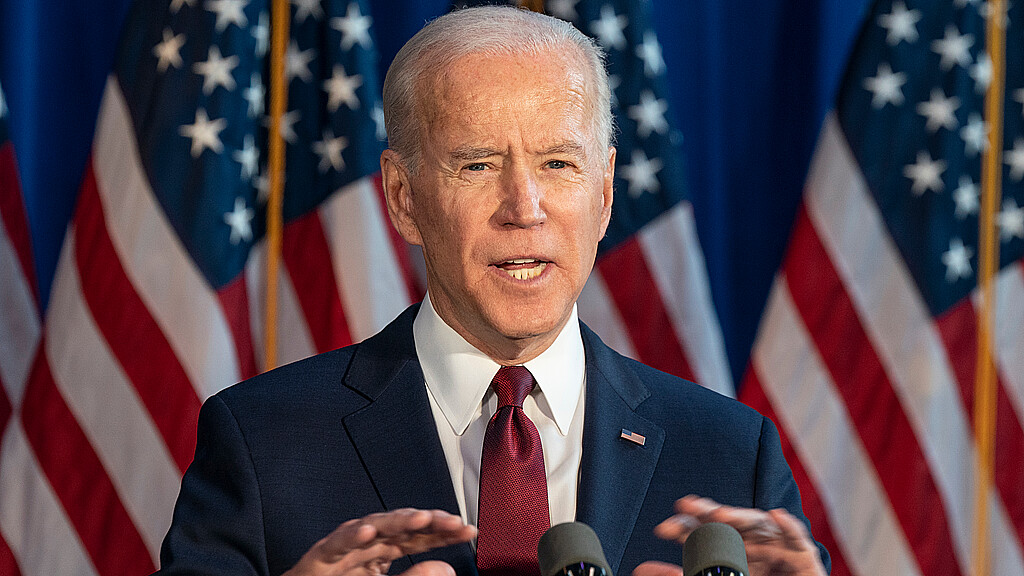Politics
U.S. intel experts call Biden laptop letter a 'premeditated and admitted lie'
Former CIA director Morell communicated to a colleague that the letter about Hunter Biden's laptop was a "talking point" intended to aid Joe Biden during a debate

May 5, 2023 8:47am
Updated: May 5, 2023 12:36pm
Former CIA chief Michael Morell, who reportedly wrote the letter signed by 51 former intelligence officials in an effort to the Hunter Biden's laptop story as part of a Russian disinformation operation, told another former U.S. intelligence official the letter was written to help the Biden campaign during the 2016 presidential election, according to the New York Post.
According to the Post, "Morell told his colleague, former CIA chief John Brennan, in an email dated October 19, 2020, which was also released by the publication Just the News, that he was attempting to give Biden’s 2020 presidential campaign some ammunition to “push back on Trump” during the debate as he urged Brennan to sign on to the letter calling Hunter Biden’s laptop a possible Russian disinformation operation.
The letter was signed by 51 intelligence officials, wrongly labeling Hunter Biden's laptop as a possible Russian disinformation operation.
"Can I add your name to the list?" Morell asks Brennan in the email.
Brennan replied: "Ok, Michael, add my name to the list. Good initiative. Thanks for asking me to sign on."
Former CIA Director John Brennan and former Director of National Intelligence James Clapper will appear before the panel in closed-door interviews on May 11 and May 17, respectively.
Intelligence experts promptly responded to the news on Wednesday night, expressing concern over the revelation that two former CIA directors utilized their professional positions to sway the 2020 elections, as reported by Just the News.
"This wasn't a 'talking point' to toss back at Trump, it was a premeditated and admitted lie to the American people designed specifically to deceive and hide the truth," retired FBI intelligence chief Kevin Brock told Just the News. "And for what? To help elect a politician? What a steep and sad cost to the soul for such a meager goal."
The New York Post played a crucial role by first reporting the bombshell story.
It was the first to reveal the explosive contents of Hunter Biden's laptop weeks before the presidential elections. This prompted high-ranking U.S. intelligence officials to unite and claim that the published information was part of a Russian conspiracy to interfere in the elections.
Morell's email also reveals information about other important members of the country's intelligence organizations who refused to sign the letter, the Post reported.
Daniel N. Hoffman, a former chief of station with the Central Intelligence Agency and retired clandestine services officer, chose not to sign Morell's letter because he knew of no intelligence or evidence to back up its claims but clarified that he respects the right of retired government officials to express themselves. He urged caution in differentiating between retired and actively serving U.S. intelligence officers, emphasizing that the latter have a duty to vote but must keep their civic obligations separate from their work responsibilities.
In a recent Washington Times column, Hoffman states that the letter was circulated exclusively for signatures and provided no opportunity for editing. It was only after hearing Morell's private testimony to the House Judiciary Committee that he became aware that the former acting CIA director had discussed the laptop matter with then-senior Biden campaign official Antony Blinken, who is currently serving as President Biden's secretary of state.
The email discloses some of the other individuals whom Morell attempted to persuade to sign the letter, such as former CIA Director Leon Panetta, former Homeland Security Chief Jeh Johnson, current Deputy Attorney General Lisa Monaco, and former National Security Agency Director Mike Rogers. While some, including Panetta, signed the letter, others, such as Rogers, did not.
The traditional U.S. press echoed this deception about the Post story, and for nearly two years, the vast majority of the mainstream media refused to acknowledge that the existence of the computer and its contents were authentic.










